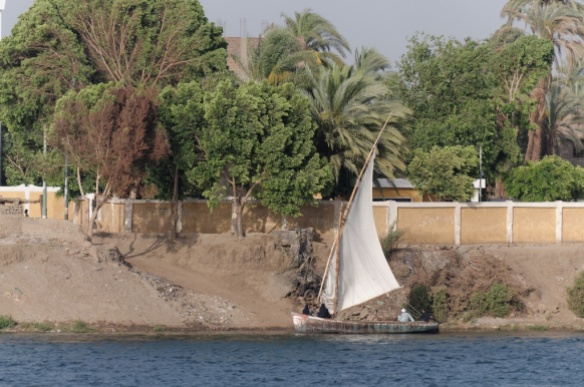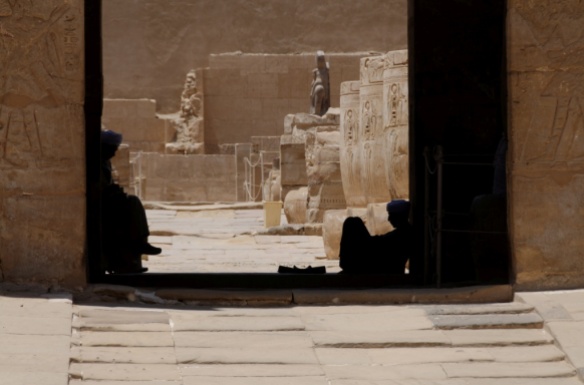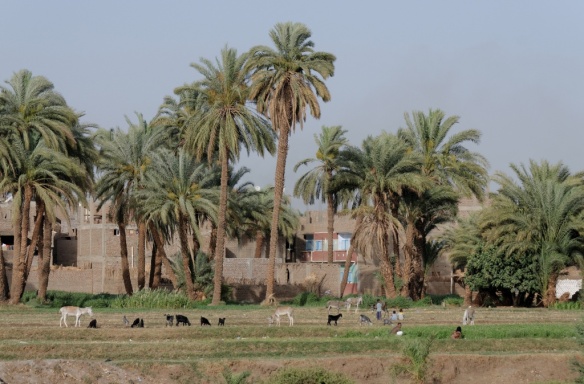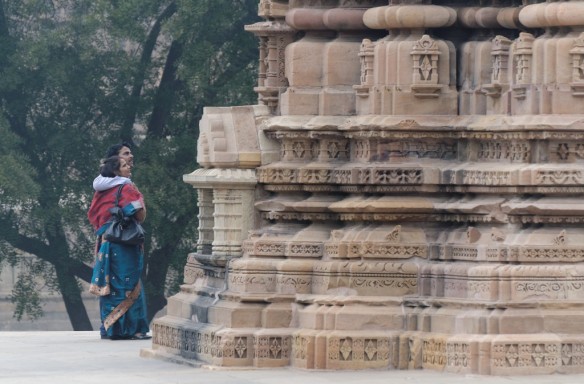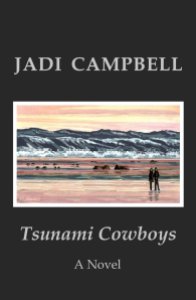The next morning as Ronnie ate a quick breakfast she asked, “Hal, do you ever have a dream that feels like it’s trying to tell you something?”
She’d blow dried her hair after showering, but wasn’t completely dressed. Hal grinned at her over the table, enjoying her curves and the lacy black slip peeking from under her bathrobe. “Something sure jolted you awake in the middle of the night. Why? What’d you dream?”
“It’s silly,” Ronnie qualified, but told him anyway. He listened to the surprisingly detailed description of what she remembered.
“Honey,” he said fondly when she finished, “it’s a no-brainer. Losing your marbles? Magic and games? Waking up just before you die is classic. Freud would probably say it’s an anxiety dream, fear and desire. Thanatos and Eros fighting it out. What were you afraid of?”
“That’s not it. It wasn’t me who died.” Restless, she began to clear away the breakfast things.
Hal checked the time, then got up and helped. “How can you know?” he queried as he put leftover rolls in a bag. “With dreams no one knows. Personally, I think the brain’s just clearing the decks for the next morning.” Hal was a big man with shaggy hair and precise mannerisms; as always, his reasoning was logical.
“No, that’s not it, either!” Ronnie’s words were louder than she intended. “It was uncanny. I need to get ready for work,” she muttered, and headed off to iron a skirt.
At the office she was preoccupied and distant, thinking back to the college mixer where she’d met Reggie. Reginald and Veronica, both anxious to shed those old fashioned monikers as fast as possible. “Reggie and Ronnie, how perfect is that? Like in the comics, right?” he’d said. “We just need Archie. You really ought to go out with me! With these names you know we’re fated.”
She gave him her number, charmed and intrigued. They’d had a grand time together. After college they parted with great affection, headed for destinies in copywriting (hers) and medical research (his). That had been eight years ago.
At lunch time Ronnie headed down the boulevard and waited at a corner with a long stoplight. Who strode across the street? Reggie.
Her old lover, beardless with short hair, didn’t look up until he was at the curb and almost ran into her. “Ronnie!” He stared, taking in the sight of her wind-blown curls and maroon blazer buttoned over a short skirt and high heels. “Good god, woman. You look great! Man, it’s good to see you!” Reggie gave her a bear hug.
She blushed. “Do you have time for a cup of coffee?”
“I don’t,” he said regretfully. “I promised my wife I’d buy her a couple mystery novels. Jane always takes at least one when we do a trip. We’re flying to Greece!”
Ronnie took a step back and almost fell off the curb.
“What is it?” Reggie smiled. “The news I got married? We met at the lab, five years ago.” He looked down at her hands and saw Ronnie had a wedding band of her own. “Looks like you did, too!”
She trotted down the sidewalk alongside him to the bookstore. He chattered as he picked over newly released murder mysteries. “We booked a cruise to mark our anniversary. We finally get the honeymoon trip I wanted. It starts with a flight to Athens. Business class,” he bragged.
They joined the line of customers waiting to pay, and Ronnie felt a crushing anxiety. “When do you fly out?”
“Friday.”
She blurted, “Reggie, do me a favor? Please? If you get delayed, don’t feel like you have to break speed records getting to the airport.”
Reggie fumbled and dropped the books cradled in the crook of his elbow. She ducked down to help pick them up. They bumped heads. He gave her a searching look and rocked back on his heels, still crouched in the middle of the line. “What’s up, Rondicious?”
Everyone around them stared, openly eavesdropping.
Ronnie blinked back unexpected tears at the old endearment. “Just, there are plenty of other flights if you miss that one, okay? I know what I’m saying sounds insane. I have this premonition, and I’ve never had one like it. It’s, a sense of foreboding,” she clarified. She felt like a complete idiot.
But as they stood back up, he nodded. Reggie wore a thoughtful look. “You know, for some reason I’ve got a weird feeling about the flight, too.” He plopped the books onto the counter and got out his wallet. “Must be that old connection we always had. I don’t think you sound silly at all. You never did.”
Back on the street they exchanged addresses and numbers. He rewarded her with one last, fast hug. Ronnie watched as he hurried down the block.
“Have a great honeymoon-wedding anniversary-vacation!” she called after him. Reggie disappeared around the corner and she felt a strange tug, as if the sense of foreboding had let her go. She wasn’t sure what had just happened, and hoped that it was a renewed hello rather than a goodbye.
On Friday night, the opening news story was the perplexing crash of Flight #423. The report ended with a telephone number and website for people to contact. Ronnie felt like a stone dropped from a great height, falling with the gravity of the gruesome details.
She barely made it to the bathroom and threw up. Then she picked up the telephone and punched out the digits to ask if Mr. Reginald Broadmaster and his wife Jane had taken that flight.
***
Prepare to meet a hero with dangerous fantasies. A young woman trapped in a cult. A person who dreams other people’s futures. A man drinking glühwein at a Christmas Market as he waits for disaster. And Lynn, the connecting thread, taking a train trip with a seductive stranger. I’ll be posting the first pages to each chapter.
Committing my characters to an appearance on this blog makes them real. As of tonight, they exist beyond my imagination.
Here are the opening pages to my novel (Name being withheld until publication date). This third chapter is titled, Precognitious.
***
Like this:
Like Loading...

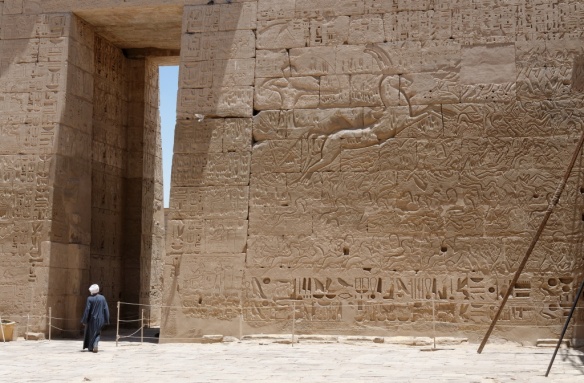
 When we went to Luxor for a week in May 2013, tourism in the area was wa-a-y down. But it’s so far from Cairo that we never felt threatened.
When we went to Luxor for a week in May 2013, tourism in the area was wa-a-y down. But it’s so far from Cairo that we never felt threatened.



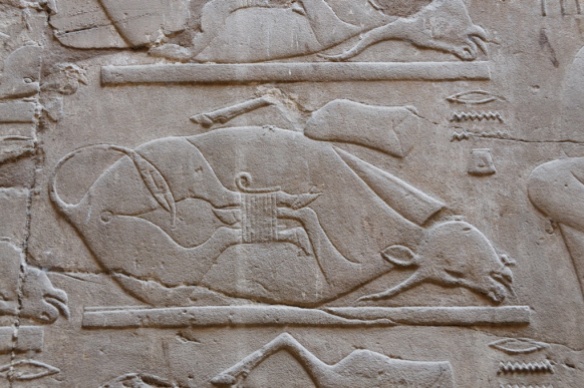 Some of the world’s most spectacular ruins, and there were almost no other tourists. Occasionally a lone bus pulled in with a group from a cruise ship or daytrippers from Hurghada on the coast, but most of the week we wandered in amazement all by ourselves.
Some of the world’s most spectacular ruins, and there were almost no other tourists. Occasionally a lone bus pulled in with a group from a cruise ship or daytrippers from Hurghada on the coast, but most of the week we wandered in amazement all by ourselves.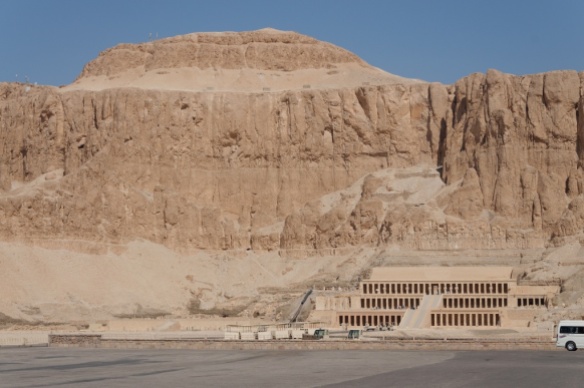




 Even the air feels like it contains the dusty molecules of ancient dynasties…. We sat each evening on the hotel balcony and enjoyed the view and the heat. On the day that I became older than my mother was when she passed away, I sat looking out over the Nile.
Even the air feels like it contains the dusty molecules of ancient dynasties…. We sat each evening on the hotel balcony and enjoyed the view and the heat. On the day that I became older than my mother was when she passed away, I sat looking out over the Nile.